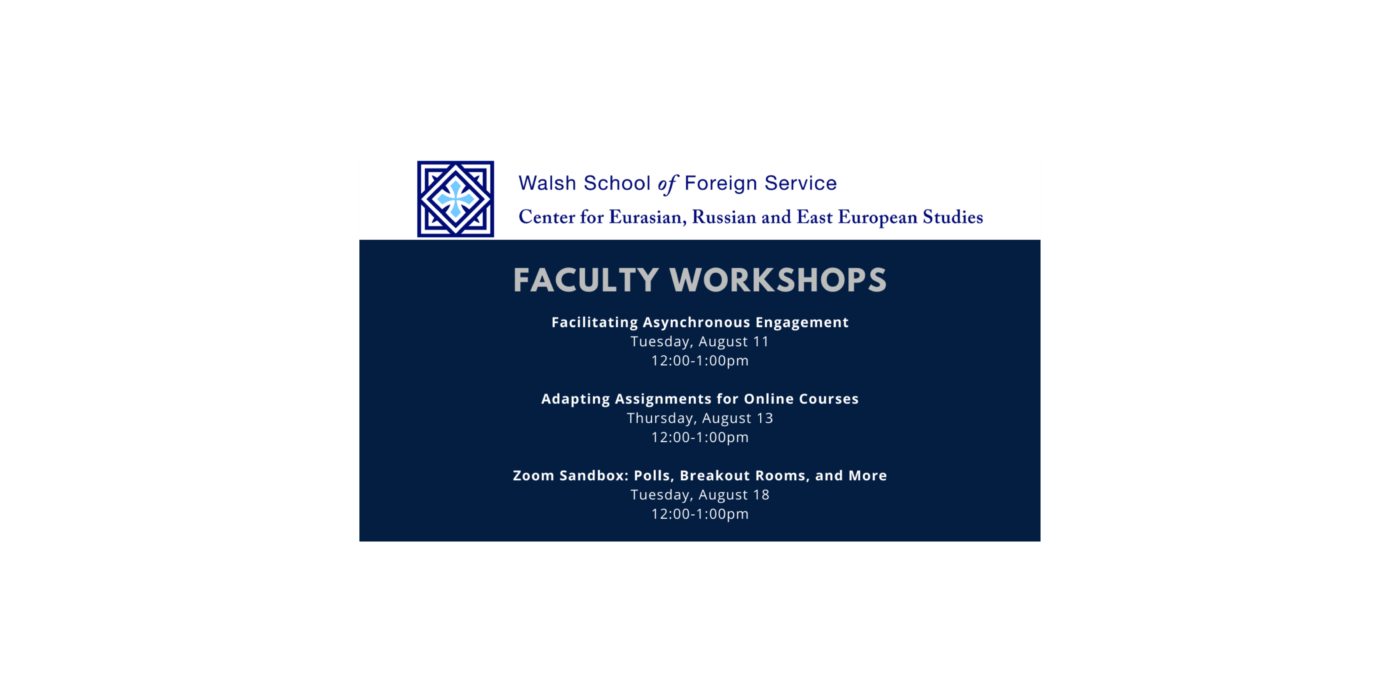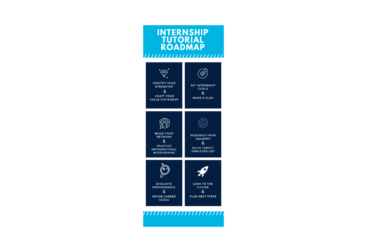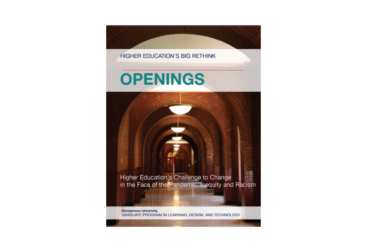Overview
In Summer 2020, I designed and facilitated a series of workshops to support CERES faculty who were moving their courses online for Fall 2020. This series was offered alongside a range of other resources for instructional continuity and the move to online teaching and learning at Georgetown.
Goals
- Support faculty in re-designing courses for online teaching and learning in Fall 2020
- Supplement existing university resources for the shift online and offer a department-specific series of workshops to dive into issues of particular concern for CERES faculty
- Offer a low-stake opportunity for faculty to practice using various tools and technologies and experience them from both the student and faculty member perspective
- Provide an opportunity for faculty to reflect on Spring 2020 online teaching experiences
- Give faculty space to share successes in teaching online and using various tools and technologies in courses both pre-COVID and during Spring 2020 instructional continuity
Structure
I surveyed our faculty members to find out which aspects of re-designing their courses were most challenging and where they felt additional assistance would be most helpful. Based on those results, I planned a series of three workshops designed to address those areas of concern.
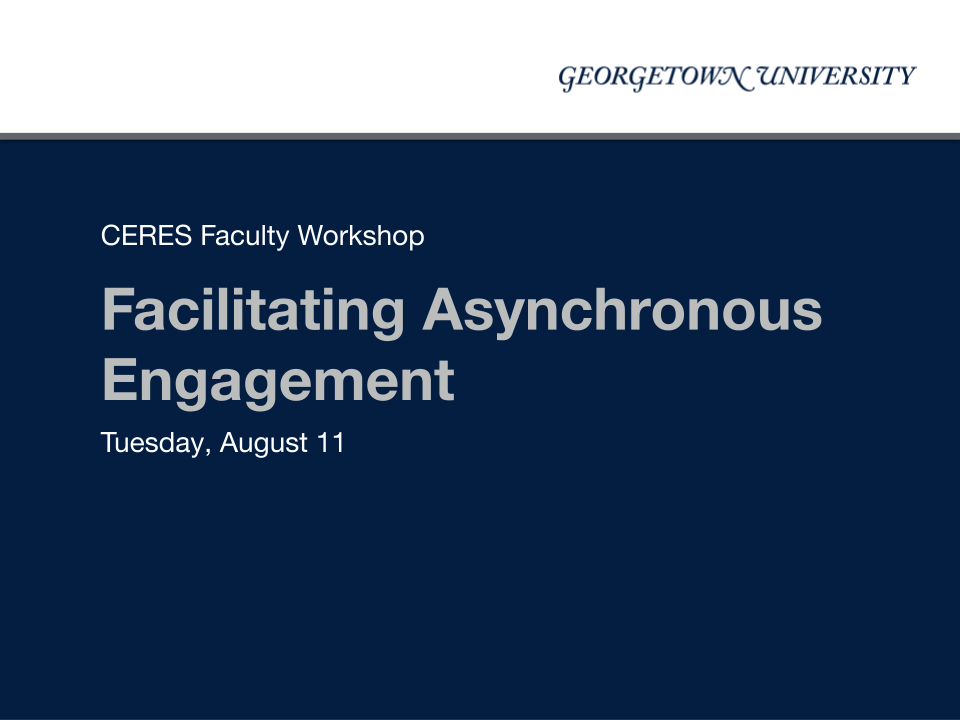
The first workshop was focused on facilitating asynchronous engagement in online courses. I provided an introduction to re-thinking contact hours and an overview of best practices in facilitating asynchronous engagement before inviting faculty who had taught in Spring 2020 to share their experiences. Our discussion centered primarily around the use of Canvas discussion boards and Hypothes.is as tools for engaging students asynchronously in graduate seminar courses.
The second workshop was focused on adapting assignments for online courses. I began by sharing student feedback gathered from Spring 2020 and then introduced some best practices for adapting different types of assignments, including student presentations, written assignments, group projects, and exams.
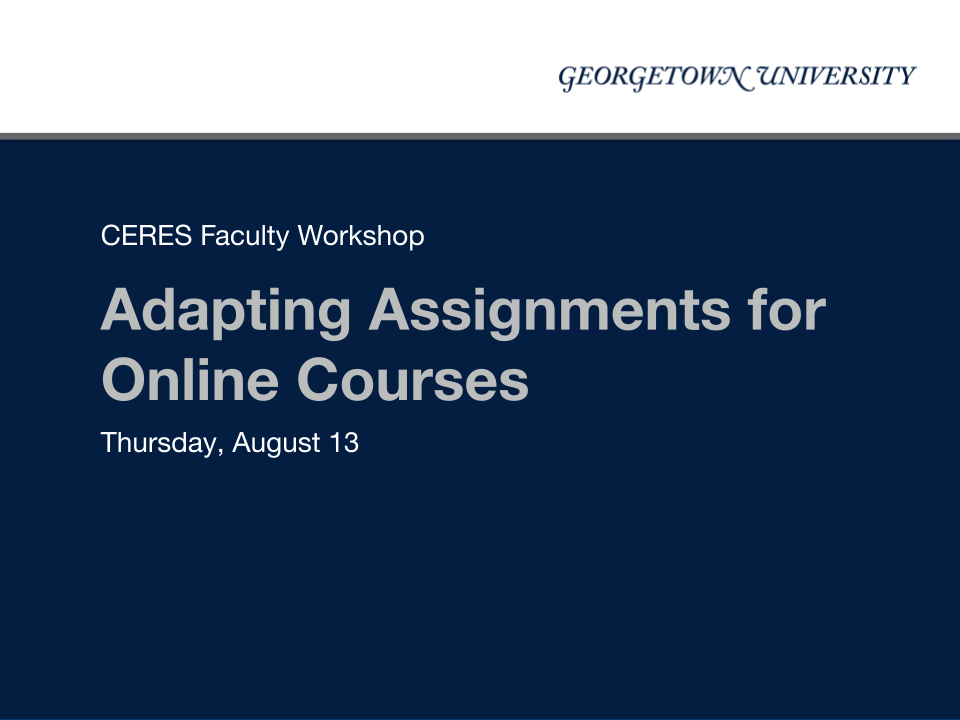
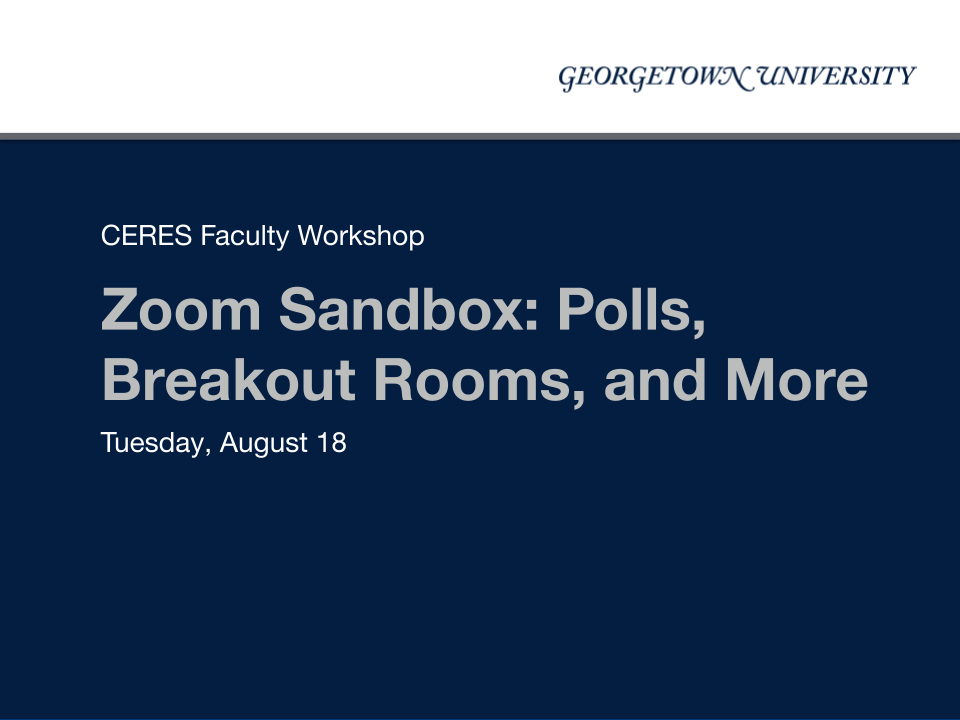
The third workshop was focused on providing an overview of tools and functions in Zoom and offering an opportunity for faculty members to experience the various tools from both the meeting host (faculty) and attendee (student) perspectives.
